Built by order of Nazi leader Adolf Hitler, this is a testament to the dark ages of Nazi Germany. However, this “concrete block” has now been surprisingly reborn.
The bunker in St. Pauli has just reopened with a new look, including two restaurants, the Hard Rock hotel, a pyramid-shaped bar and a rooftop garden filled with greenery.
Hard Rock's REVERB Hotel is a perfect fit for Hamburg, a city with an impressive music history and where The Beatles began their singing career in the early 1960s.
The Karoviertel neighborhood, home to the fortress-like bunker, is a cool area with cafes and vintage shops, along with the Knust nightclub, which was converted from a slaughterhouse.
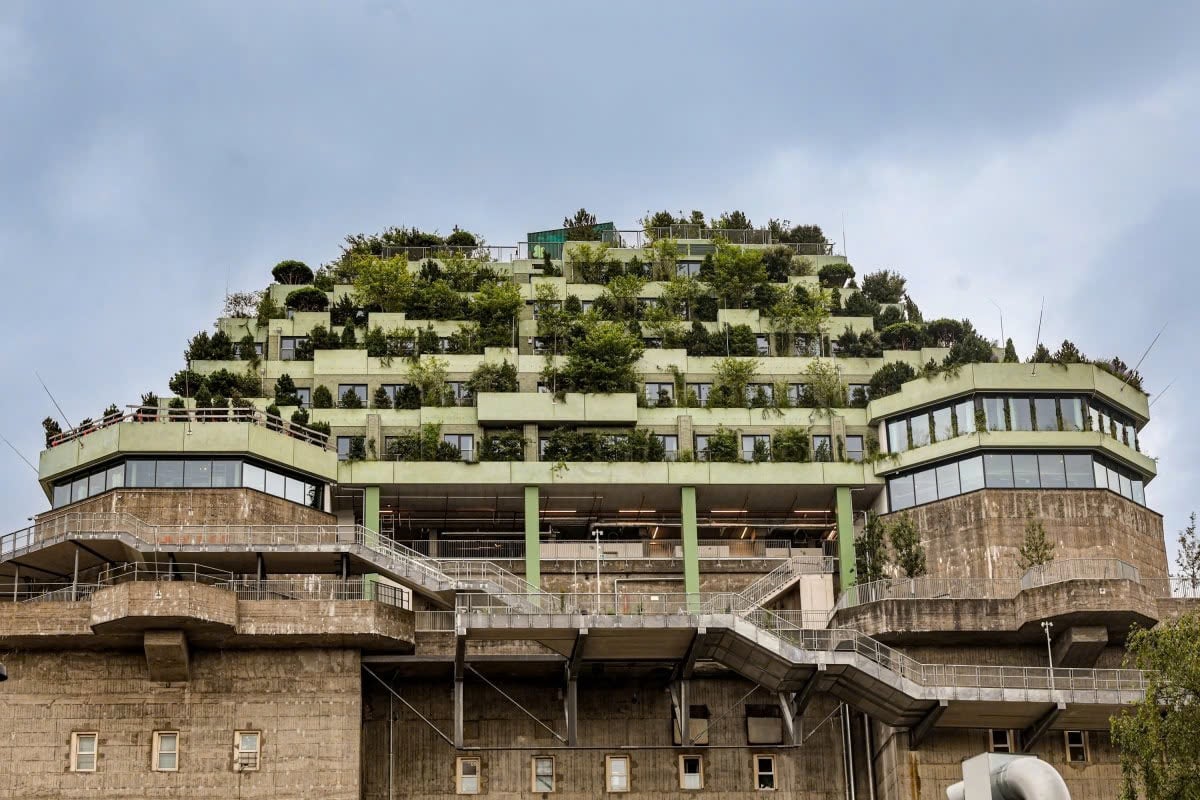
The Nazi wartime Hamburg bunker in Hamburg, Germany, has been converted into a hotel, entertainment complex and rooftop park. Photo: The Guardian
Rough concrete block becomes green and modern hotel
The REVERB hotel has 134 rooms, ranging from 180 euros for a standard room with amenities such as a 55-inch TV and Alexa virtual assistant, to 269 euros for a superior room with a panoramic view of the city.
The hotel also features amenities like self check-in, modern technology, and even workspaces.
However, you don’t have to be a hotel guest to enjoy the facilities here. On the ground floor, they have a cafe and bar, or a shop for those who want to buy souvenirs.
La Sala Restaurant – Spanish for living room – has stunning views on the fifth floor and a varied menu with cuisines from around the world.
Finally, the Green Beanie garden and rooftop bar with a walkway around the building, which is free for residents to visit.
A place to tell historical stories
The Hamburg Bunker was one of eight flak towers - above-ground anti-aircraft bunkers, used as air raid shelters - built by the Germans following the British air raid on Berlin in 1940.
The history of the Hamburg bunker is heavy, but the giant “concrete block” weighing 76,000 tons with 2.5 meter thick walls cannot be easily demolished or ignored.
The only anti-aircraft tower completely destroyed was one at the Berlin Zoo, while the others were located in densely populated areas where the use of explosives was too great a danger.
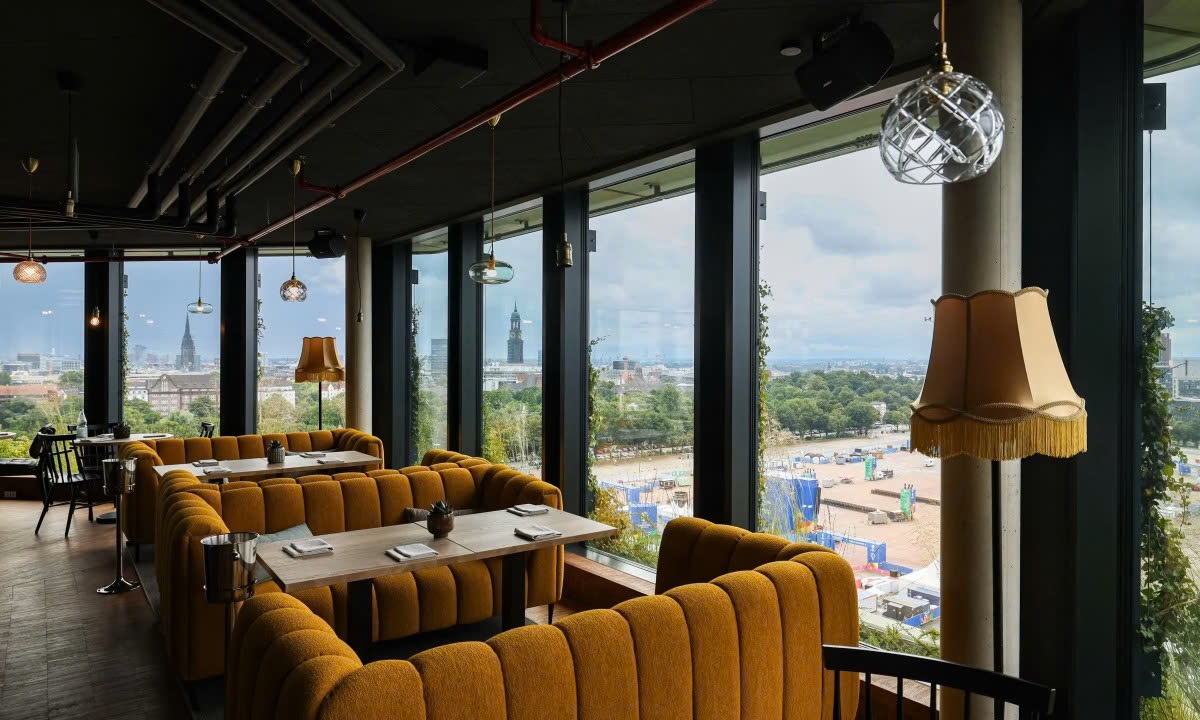
Sala Restaurant on the fifth floor with panoramic views of the city. (Photo: Ulrich Perrey /Getty Images)
“The idea of elevating the building with greenery would give this giant remnant of the Nazi dictatorship something peaceful and positive,” Anita Engels, from the Hilldegarden neighbourhood association, told AFP.
The association has helped create a new chapter in the history of the Hamburg air defense tower by collecting testimonies from those who lived in the wartime bunker, as well as records of hundreds of workers who built the building.
The exhibition on the first floor tells the whole story of the history of this place.
Ha Trang (according to AFP, CNN)
Source: https://www.congluan.vn/boong-ke-thoi-duc-quoc-xa-tro-thanh-to-hop-khach-san-va-giai-tri-o-duc-post307835.html



![[Photo] Prime Minister Pham Minh Chinh chairs meeting after US announces reciprocal tariffs](https://vstatic.vietnam.vn/vietnam/resource/IMAGE/2025/4/3/ee90a2786c0a45d7868de039cef4a712)
![[Photo] General Secretary To Lam receives Japanese Ambassador to Vietnam Ito Naoki](https://vstatic.vietnam.vn/vietnam/resource/IMAGE/2025/4/3/3a5d233bc09d4928ac9bfed97674be98)
![[Photo] Moment of love: Myanmar people are moved to thank Vietnamese soldiers](https://vstatic.vietnam.vn/vietnam/resource/IMAGE/2025/4/3/9b2e07196eb14aa5aacb1bc9e067ae6f)

![[Photo] Special relics at the Vietnam Military History Museum associated with the heroic April 30th](https://vstatic.vietnam.vn/vietnam/resource/IMAGE/2025/4/3/a49d65b17b804e398de42bc2caba8368)

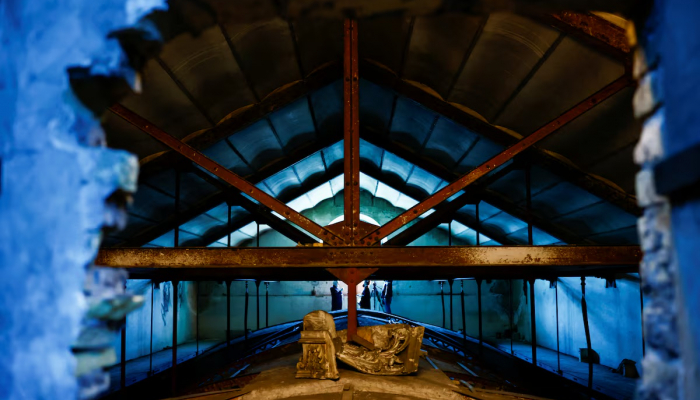



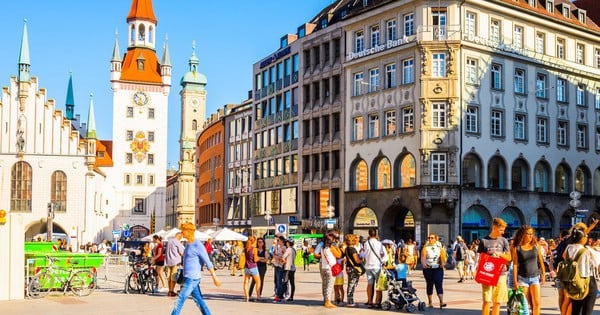

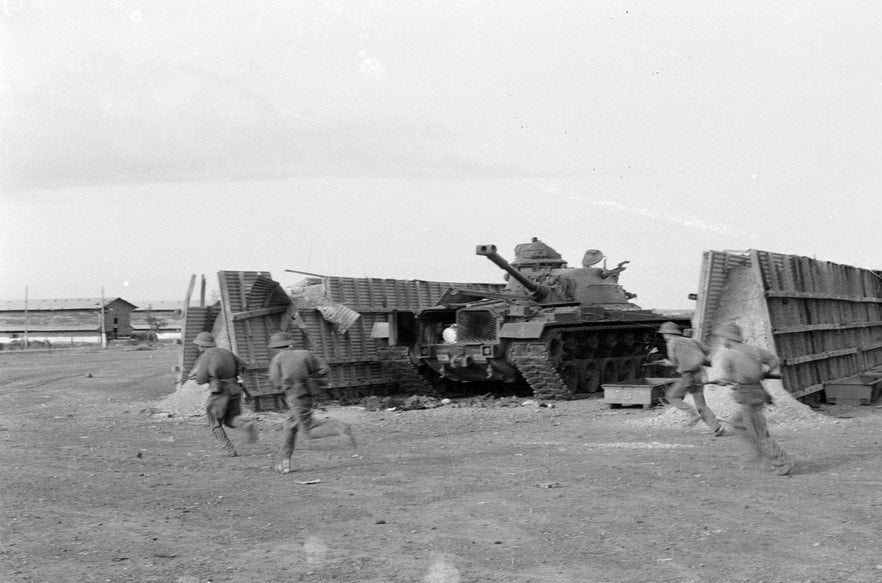































































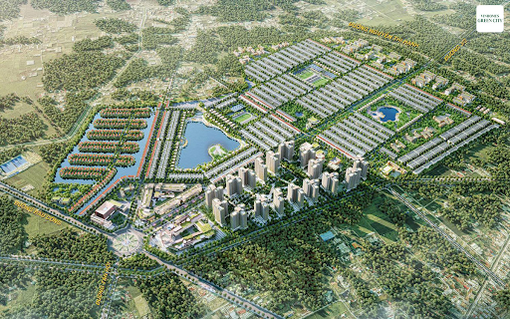
















Comment (0)